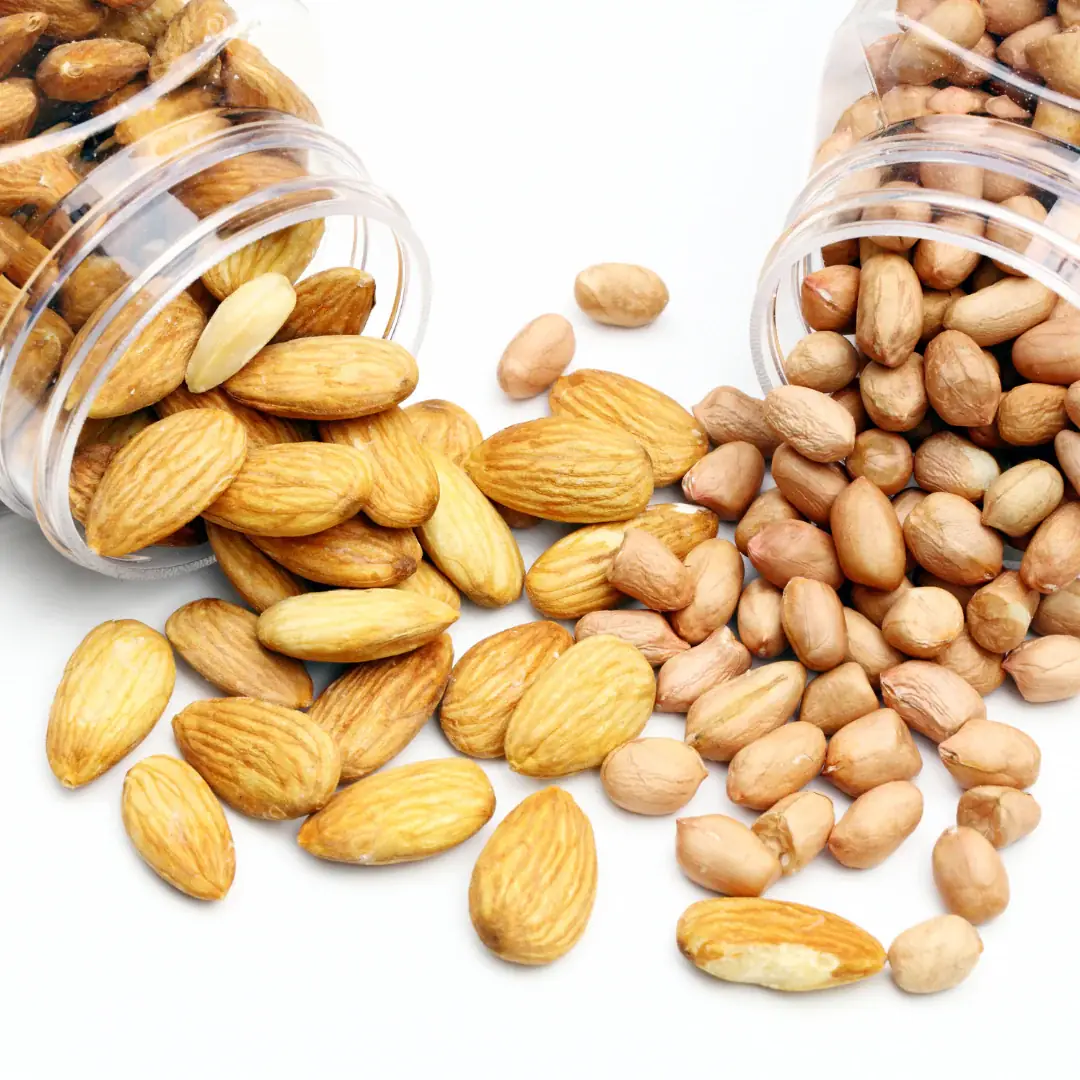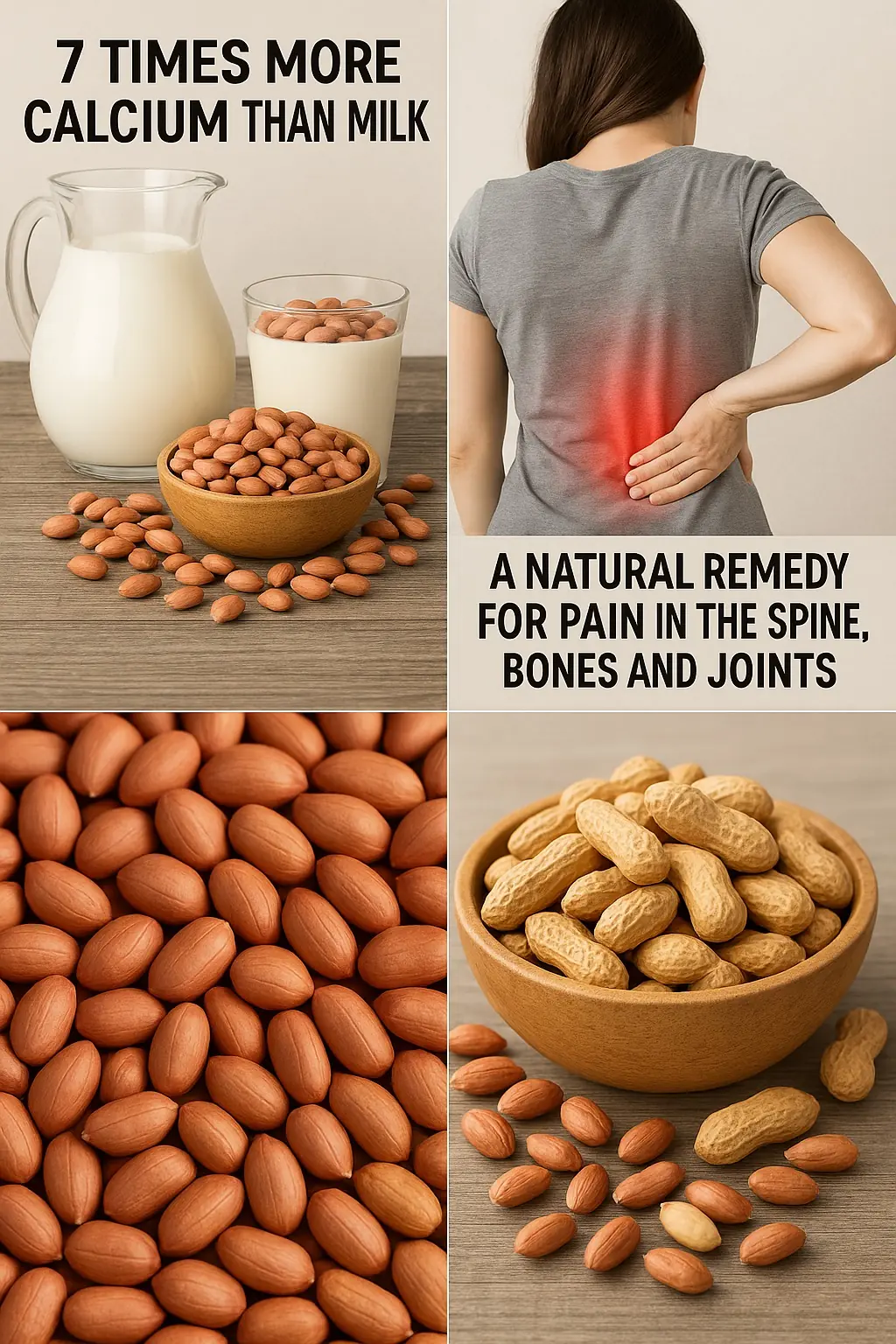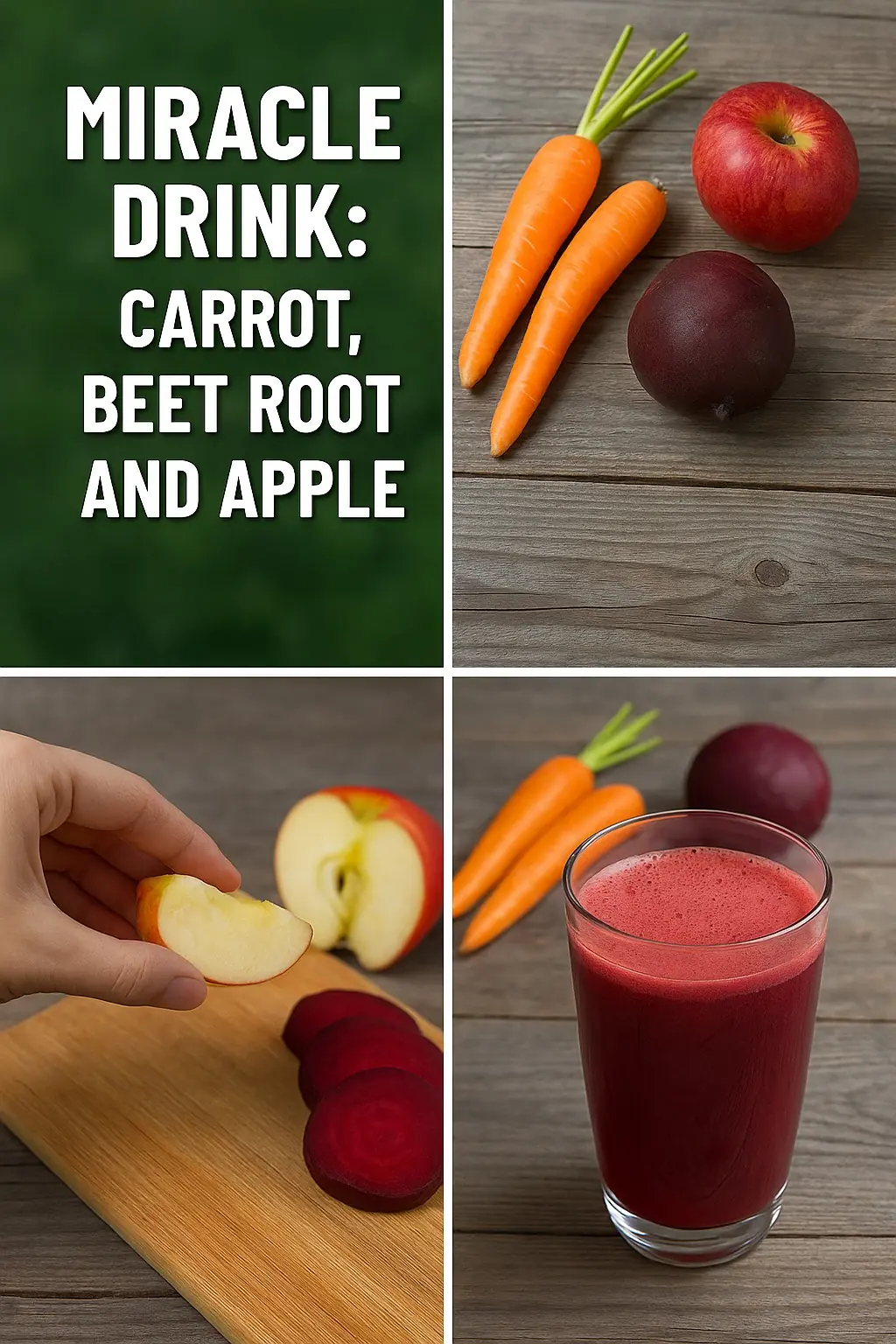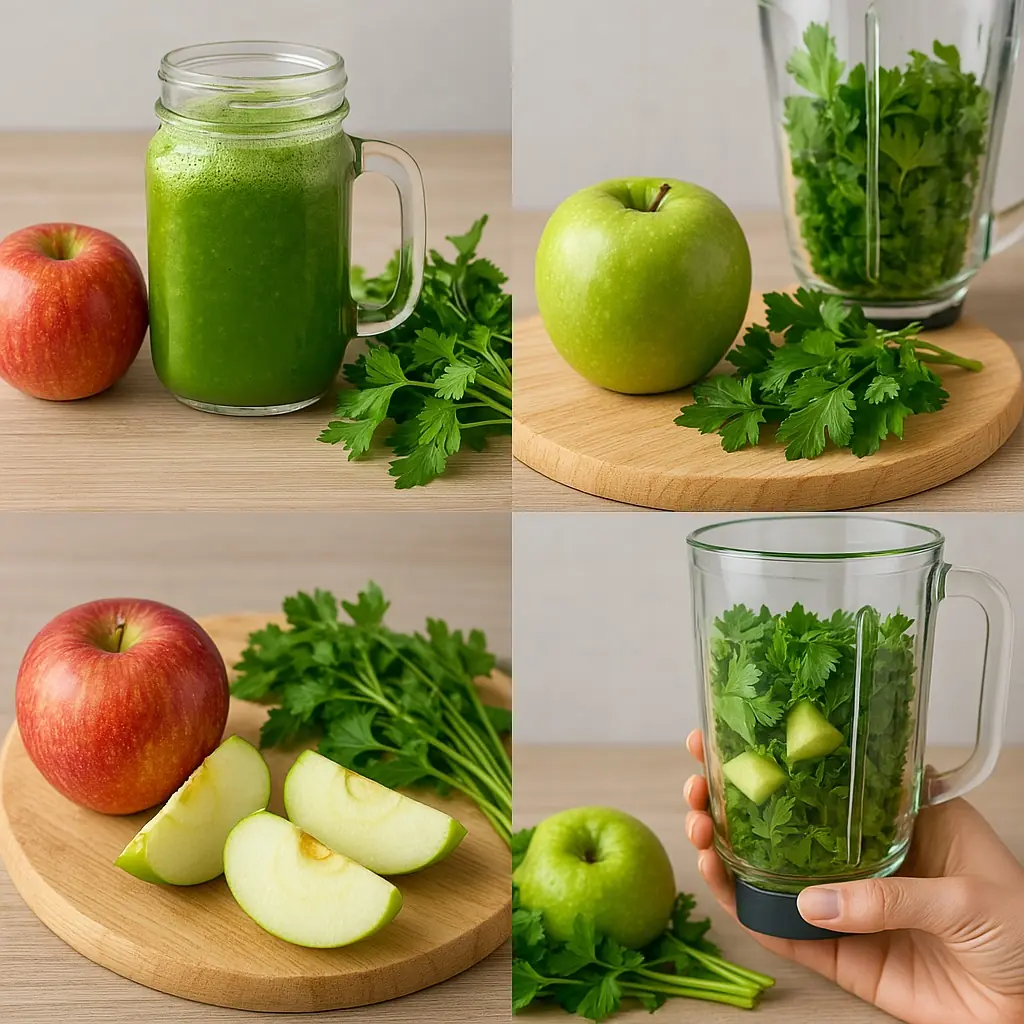
Peanuts vs. Almonds: A Nutritional Comparison
Protein Content:
Peanuts have a slight edge over almonds in protein content. A 100-gram serving of peanuts provides approximately 24.4 grams of protein, whereas the same serving of almonds contains about 21.2 grams, making peanuts roughly 15% higher in protein.

Vitamin and Mineral Profile:
-
Vitamin E: Almonds are notably high in vitamin E, offering about 45% of the recommended daily allowance per ounce, which is significantly higher than peanuts.
-
B Vitamins: Peanuts excel in B vitamins, particularly niacin (B3) and folate (B9), providing 24% and 10% of the daily recommended intake per ounce, respectively.
Fat Composition:
Both nuts are high in healthy fats, but their saturated fat content differs. Peanuts contain approximately 7.7 grams of saturated fat per 100 grams, while almonds have about 3.8 grams, making almonds the preferable choice for those monitoring saturated fat intake.
Caloric Content:
The calorie counts of these nuts are similar. A 100-gram serving of almonds contains about 579 calories, whereas the same amount of peanuts provides approximately 567 calories.
Cost Considerations:
Peanuts are generally more affordable than almonds, primarily due to their higher yield and lower cultivation costs. This makes peanuts a cost-effective option for those seeking nutritious snacks on a budget.
Conclusion:
Both peanuts and almonds are nutrient-dense foods that can be valuable additions to a balanced diet. Your choice between the two may depend on specific dietary goals, such as increasing protein intake or reducing saturated fat consumption, as well as budget considerations.
News in the same category


Eat Banana and Avocado Every Morning, THIS Will Happen to Your Body! (Did You Know That?)

Bay Leaf Is 100,000 Times Stronger Than Botox? | Natural Wrinkle Eraser Even at Age 70! ✨🧖♀️

Garlic for Health: Avoid These 6 Common Mistakes

Peanuts: Unlocking the Health Benefits for Your Bones and Joints

The Amazing Benefits of Chewing 2 Cloves Daily – A Simple Habit for Better Health

I Haven’t Been Sick in 35 Years – Here’s My Secret with Ginger and Red Onion

Unbelievable! I 100% Restored My Vision with This Powerful Parsley Drink

Mix Vaseline with Lemon and You’ll Be Shocked! If Only I Had Known Sooner!

Natural Teas for Healthy Blood Circulation

Stop Shaving! Here’s a Natural Way to Reduce Unwanted Hair Using Garlic

Blood Sugar Drops Immediately! This Vegetable Is a Real Treasure: Nettle 🌿

Natural Face Lift with Cornstarch: Say Goodbye to Wrinkles Naturally! 💆♀️

The Best Natural Collagen Boost – Do This Every Night and You’ll Be Amazed! 🌙💪 | Beetroot Collagen Recipe

Blueberry Water: A Refreshing Drink That Loves You Back

Why are your veins suddenly bulging and visible?

Sip Strength Before Sleep: The Cucumber & Pomegranate Elixir for Unstoppable Vitality at Any Age

Nature’s Power Trio: Garlic, Honey, and Cloves for Vibrant Wellness

The Hidden Power of Prickly Lettuce: The Unpretentious Wonder of Nature ....

The Most Dangerous Sleeping Position: What You Didn't Know
News Post

My wife left me and the kids for a rich man — 2 years later, she begged for another chance

What Do You See in the Image? A Goat or an Eagle? Your Brain Might Decide!

Ex-model on addiction and homeless life: ‘I’m in a lot of pain’

Twin toddlers drown after grandmother with Alzheimer’s leaves door open

Whispers under the bed: 5 year old’s cry for help

Cherry Peach Lattice Pie

Boost Your Health with a Miracle Drink

Restore Your Eyesight Naturally: A Simple Drink Recipe

Lemon and Carrot Remedy: A Powerful Solution for Joint Health

Mix Parsley with Apple! A Secret No One Will Tell You – 100% Effective! !

Eat Banana and Avocado Every Morning, THIS Will Happen to Your Body! (Did You Know That?)

Bay Leaf Is 100,000 Times Stronger Than Botox? | Natural Wrinkle Eraser Even at Age 70! ✨🧖♀️

Garlic for Health: Avoid These 6 Common Mistakes

Peanuts: Unlocking the Health Benefits for Your Bones and Joints

The Amazing Benefits of Chewing 2 Cloves Daily – A Simple Habit for Better Health

I Haven’t Been Sick in 35 Years – Here’s My Secret with Ginger and Red Onion

Unbelievable! I 100% Restored My Vision with This Powerful Parsley Drink

Mix Vaseline with Lemon and You’ll Be Shocked! If Only I Had Known Sooner!

This Is the Perfect Recipe for All Ills!
